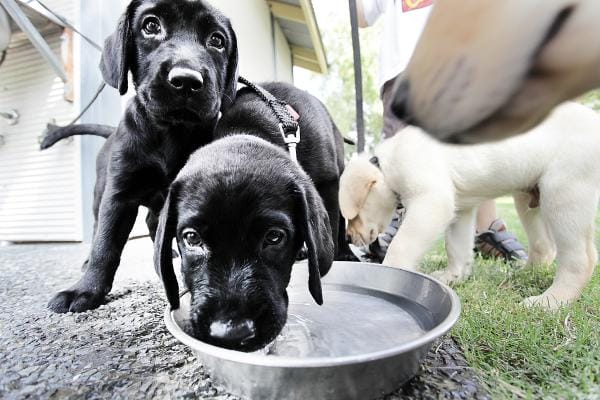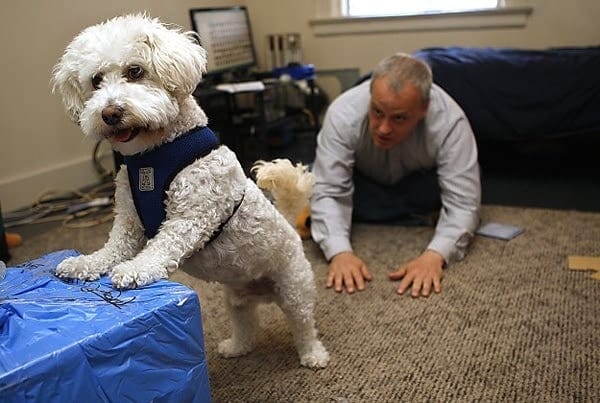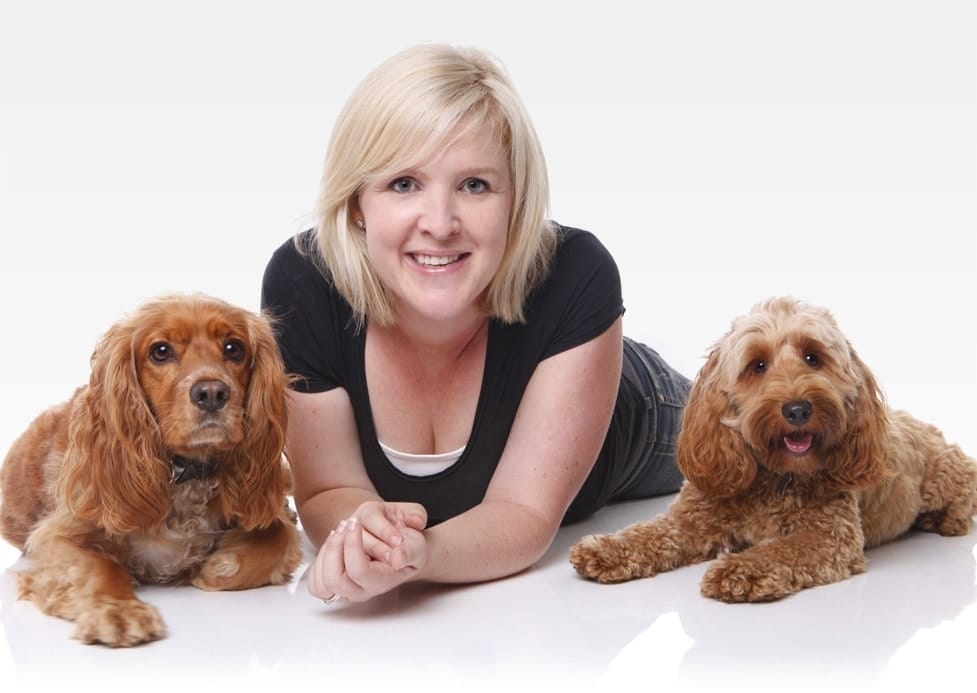When I first started this blog I wrote a mission statement of sorts where I tried to highlight what Puppy Tales stood for: “exploring the further integration of dogs into our society and highlighting the benefits and enjoyment they can bring to all members of our community.”
This sentence came from a realisation that all my interactions with animals, whether they were my pets (cats, dogs, lizards & chickens) or other creatures I came in contact with (through my work as a vet nurse, studying zoology at university or in many roles I held at the Australian Museum) have made me a better person. They have enabled me to care for something beyond myself and quickly learn to empathise with and respect other beings. Through my studies of organisms in the Kingdom Animalia at University I wondered in their beauty, physiology, life histories and behaviours. And even more recently when I have again owned pets as an adult, being solely responsible for their care and happiness, I have enjoyed new benefits in relation to my personal health and wellbeing.
These benefits are talked about more and more these days in the media, especially with the development of the relatively young field of research called Anthrozoology. Anthrozoology encompasses many different fields of research and has contributors from a broad range of disciplines: psychologists, psychiatrists, zoologists, political scientists, social scientists, cardiologists, medical scientists, allied health scientists, behavioural scientists and veterinarians. They all combine to form this unique field that studies the role of animals in the lives of humans, and vice versa.
This all might seem very philosophical and scientific for a dog blog but these big ideas about our relationships with other animals and the natural world can give us fresh perspectives on everyday matters and improve our lives and those of others. Examples of improvements in everyday life with the use of animals is long but here are a few examples:
- Animal assisted therapy in nursing homes, hospitals and psychiatric institutions
- Dogs being used in schools to improve education outcomes for children with and without disabilities
- Pets as a conduit for social capital in our communities
- Pet ownership strongly linked with positive health benefits and increased exercise
- The positive impacts of dogs in our workplaces
- Benefits of animal-assisted interventions with young offenders
I firmly believe that as more people think about our relationships with animals, more new ideas will arise to improve the quality of modern life for everyone (non-humans included). Two specific examples of this that I have read about lately are the ‘Pups in Prisons’ program and the Wonderful Opportunities for Occupants and Fidos, or the WOOF program.
The ‘Pups in Prisons’ program is run by Assistance Dogs Australia and is now in its 8th year of operation. The program is a way for Assistance Dogs Australia to train more dogs that can help people with physical disabilities, while helping offenders serving time in corrective centres to reduce re-offending behaviour. It does this by giving offenders skills to assist in their own rehabilitation, such as improved communication skills, increased self confidence and the ability to work as a team member. But it also allows them to give back to the community, with these dogs eventually giving freedom and independence to someone with a physical disability. The program has been very successful and has now been rolled out to eight other Corrective Centres across Australia. It has also been allowed to expand to a new program called ‘Justice Pups’ that operates in Juvenile Justice Centres working with young offenders.

Some of the quotes from the offenders are amazing:
“For the first time in years it will allow us to show softness, tenderness and affection. Caring for these dogs will help us rekindle certain feelings and emotions, help us lighten up and bring a little more humanity into our lives…”
“I felt like I’d never be a good dad to my kids. But working with the puppies, I’ve learnt you’ve got to have patience and be consistent. I know I can be a better dad.”
“It will help us inmates, it will help Assistance Dogs Australia, it will help people with special needs and it will also help the prison environment, by improving self esteem and empathy levels among inmates, increase positive behaviours and moods, create better relationships between staff and inmates and open up more opportunities for education, training and employment…”
To find out more about the ‘Pups in Prison’ and ‘Justice Pups’ programs check out the Assistance Dogs Australia website.
The Wonderful Opportunities for Occupants and Fidos (WOOF) has just launched in San Francisco to try and deal with the city’s entrenched begging (panhandling) problem. San Francisco City Hall, who has previously tried getting panhandlers off the streets through bans are now trying a new approach where they match panhandlers and problematic dogs at the local pound, providing them with a small amount of money to foster and care for the dogs, getting them ready for adoption.
All the applicants will be screened to ensure they are a good fit which means they must be living in supportive housing and not on the streets (apparently the city council has anecdotal evidence to suggest the majority of panhandlers are housed, but supplement their income through begging or just don’t have anything else to occupy their time). The applicants must also show they are not severely mentally ill, aren’t hoarders, don’t have a history of violence, and are seeking treatment if they have addictions. They also must pledge to stop begging and if they’re caught panhandling with their dog, the animal will be taken back to the shelter. In exchange, they will receive $50 -$75 a week, several training sessions provided by an animal behaviour specialist at Animal Care and Control as well as regular check-ins by that person and all the dog food, toys, leashes and veterinary care they need.

Matt Traywick, who suffered from depression and isolation after leaving the streets for a Tenderloin housing complex, found a new focus when he adopted a bichon mix named Charlie Photo: Liz Hafalia, The Chronicle
I am most eager to see how this program works out. If it helps improve the lives of some of the applicants, dogs and the general community it will be a great success. The WOOF program launches August 1st and will run for three months. If it is successful, city officials hope to find more funds to place more problematic pets with loving parents.
These two programs are just two of many examples that are now being developed as we gather a greater understanding of our connection with other animals. The famous scientist Edward O. Wilson wrote an incredible book entitled ‘Biophilia’ where he argues that our natural affinity for life — biophilia — is the very essence of humanity and binds us to all other living species. So to sum up I will steal a line from his book:
“To the degree that we come to understand other organisms, we will place greater value on them, and on ourselves.”

Lisa Miller
Lisa Miller is a blogger, digital strategist, business coach, zoologist and crazy dog-lady! Lisa lives in Sydney, Australia with her husband, two kids, two dogs and two cats. That equates to a lot of fun and vacuuming. Her dog’s names are Cresswell and Edwina (or Cress and Eddie).


